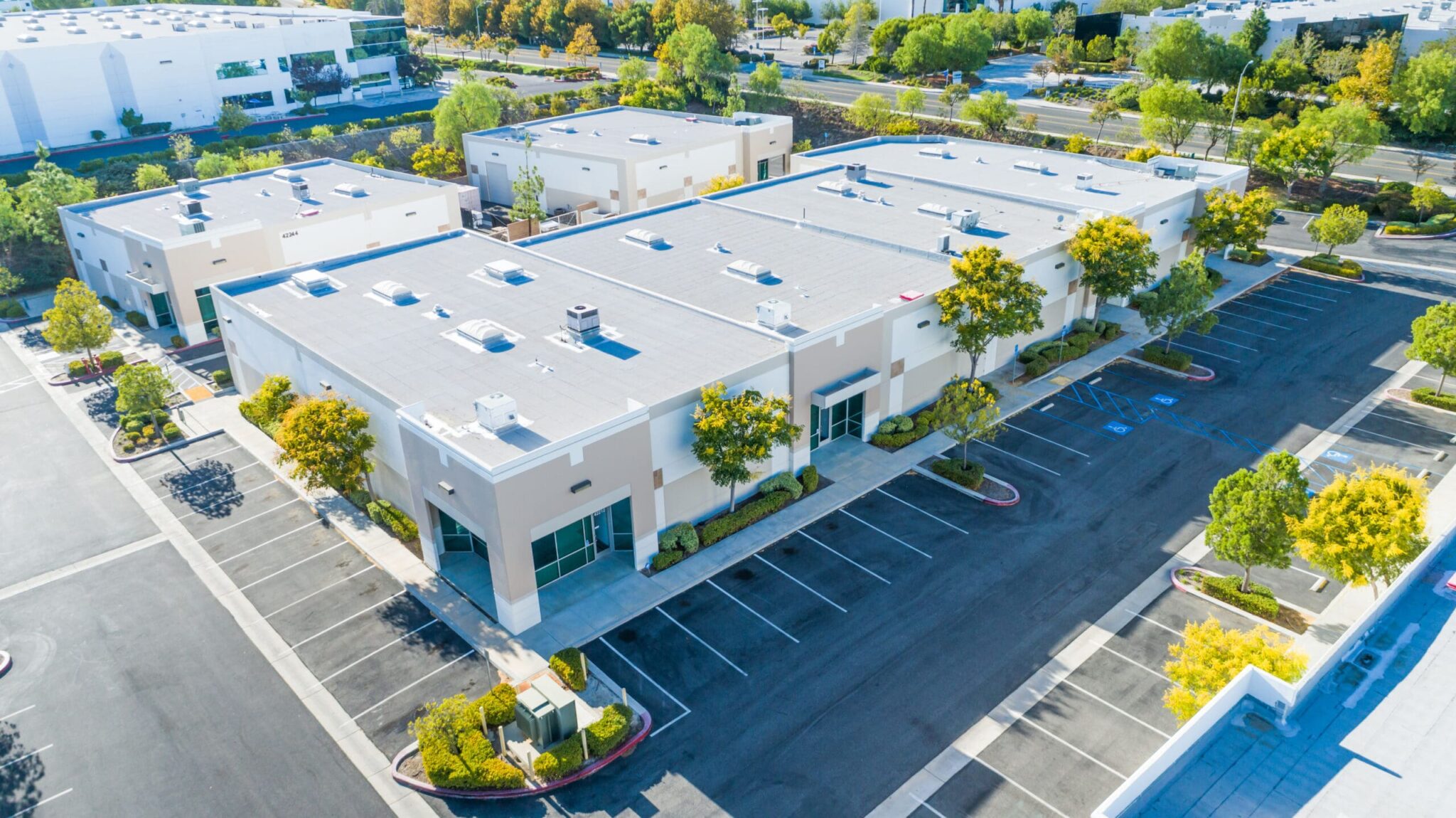One of the critical things to consider when building and maintaining an industrial building is how much your roof might be compromised. So, industrial roofing services are essential because they protect against all these atmospheric conditions. This protection ensures day to day operations can carry on without worrying about whether water damage or structural failure could be inside waiting, ready to pounce, perched high above your head with a hidden view far below it.
A properly maintained roof safeguards the company’s tangible assets and adds to the workplace’s overall safety and operational efficiency. In this article, we will discuss all the perspectives of industrial roofing services, their significance, and how they converge on storm drain pipe repair, highlighting why comprehensive facility management is necessary.
The Importance of Industrial Roofing Services
Typically, industrial roofs have more demanding specifications than your typical residential roof. They have to withstand the weather, have heavy equipment, and have tonnes of HVAC units. Therefore, quality industrial roofing services are not only about looks but also about a building’s functionality and safety.
The most significant role of a roof in an industrial setting is to offer shielding from the external environment, including rain, snow, and extremely high or low temperatures. A leaking roof can be very damaging, not only to the building but also all of its contents. Ingress of water can result in mould development, potentially serious health risks for employees, and likely very high maintenance costs. This is where professional roofing services like inspections, repairs, and replacements are handy.
Types of Industrial Roofing Systems
Several roofing options are available for industrial buildings, each offering advantages. These include single-ply membranes, metal roofs, built-up roofing, and modified bitumen. Different systems offer different levels of durability, insulation, and weather resistance.
Lightweight single-ply membranes like EPDM (ethylene propylene diene monomer) and TPO (thermoplastic olefin) are spacious roofs installed in sheets and offer excellent protection against UV rays and high temperatures. One of these roof types is built-up roofing, colloquially called ‘asphalt and gravel’ roofing, because it features multiple layers of hot tar and asphalt topped with mineral granules.
Another good option is metal roofing, which has a longer lifespan and durability for various types of weather. It also reflects heat and improves energy efficiency in the building. Alternatively, modified bitumen roofs provide versatility and can be installed using several methods, making them perfect for most industrial applications.
The Role of Regular Maintenance
The maintenance of industrial roofing systems is extremely important for their longevity and performance. Predictive maintenance can save businesses thousands of dollars in repairs or replacements by discovering impending issues before they become disasters. These professional services provide regular care and remove debris and minor damages.
Roofing contractors inspect the roof for wear, leaks, and structural issues. They also inspect the flashing, seams, and penetrations to ensure that they are not compromised. Scheduled maintenance, however, extends a roof’s life naturally and ensures it is both safe and efficient for workers.
The Connection Between Roofing and Storm Drain Pipe Repair
One underappreciated element of managing industrial facilities is the relationship between roofing and related storm drain systems. To prevent roofs from getting ruined by stagnant water, it is necessary to have an operational draining system. Roofs that are not properly configured to drain rainwater force extra load on storm drains, which may cause flooding.
Storm drain pipe repair is one of the things that makes a good drainage system work. If the plumbing is obstructed, broken, or poorly installed, water may back up and stay in pools around the rooftop, causing leakages and structural damage. The sooner any problems are caught, the better, so frequent review of both your roofing system and storm drains will alert you if channels or grading may eventually allow water to pool alongside your building.
If you are having your roof maintained, it pays to have the storm drain systems checked as well. Experienced roofing maintenance can also check that your drainage system is clean and working without obstacles. An integrated approach not only extends the life of the roof but also improves overall plant health.
Choosing the Right Industrial Roofing Service Provider
Choosing a reliable industrial roofing contractor ensures good work and better long-term outcomes. If you own a business, find a company that knows the ropes of industrial roofing systems and has numerous projects under its belt. One must check credentials, review customer feedback, and ask about warranties or maintenance packages.
They will assess the building and recommend what is ideal for your facility. They should also give you a comprehensive plan for continuing care of your investment and remind you to focus even more on prevention than cure for high expenses.The industrial roofing services are important to ensure your business remains secure and ready for climatic adversities. This is key, as quality roofing systems also lend a hand to firms in minimising risk and prolonging the life of their facilities. This analogy also explains how the roof and storm drain pipe repair are closely related. It thus once again stresses the need for effective facility management. A holistic approach for businesses to safely and sustainably host employees without sacrificing investments.

